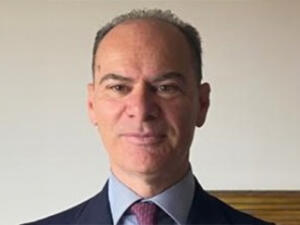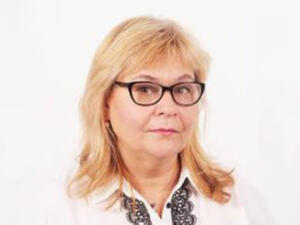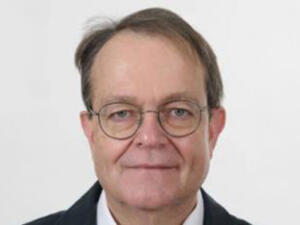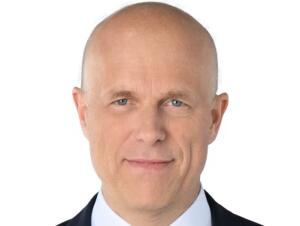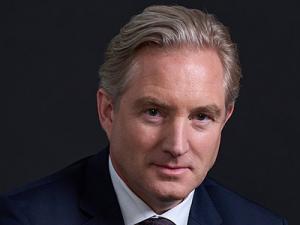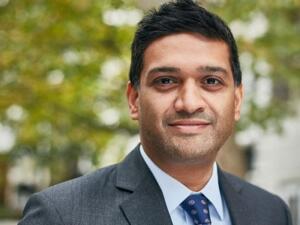Paris central division confirms Edwards patent in heart-valve dispute with Meril
On Friday the Paris central division handed down its first revocation ruling confirming an important patent belonging to Edwards Lifesciences. The bench headed by presiding judge Paolo Catallozzi rejected a revocation action and two counterclaims of revocation from three subsidiaries of Meril Life Sciences. The Munich local division can now resume the infringement case brought by Edwards.
22 July 2024 by Mathieu Klos
In the end, it was an auxiliary request from Edwards Lifesciences that made the difference. The Paris central division issued its first revocation judgment late on Friday and confirmed Edwards Lifesciences’ important EP 3 646 825 (case IDs: UPC_CFI_255/2023 and UPC_CFI_15/2023). The patent protects a system comprising a prosthetic heart-valve and catheter.
Thus, the direct revocation action and two counterclaims for revocation by Meril Life Sciences were unsuccessful. In April, Edwards had applied to limit the patent with auxiliary requests. The Paris judges have now confirmed EP 825 in this limited version, as stated in the ruling. The amount in dispute is €8 million. As a whole however, the battle between Edwards and Meril is likely to concern a vast deal more.
Following the ruling, the Munich local division can now proceed with Edwards’ infringement action. It is directed against the German Meril GmbH and the Indian Meril Life Sciences Pvt Ltd (case ID: ACT_459987/2023).
Meril may appeal against the judgment. This is considered likely, partly because it could further delay an infringement judgment from Munich.
First ever hearing at Paris central division
In early June, the UPC’s Paris central division heard the case in Meril Life Sciences vs Edwards Lifesciences as its first ever revocation case. Paolo Catallozzi presided over the hearing, with the participation of Tatyana Zhilova and technically qualified judge Stefan Wilhelm.
- Paolo Catallozzi
- Tatyana Zhilova
- Stefan Wilhelm
Competitors Edwards and Meril have been facing off in the European patent courts for years over heart-valve technology. Edwards took the dispute to the UPC last year. Edwards has sued Meril twice for patent infringement – at the Munich local division and the Nordic-Baltic regional division. A request for a PI is also pending in Munich.
Several Meril subsidiaries responded with counterclaims for revocation at the Munich local division. In August 2023, Meril Italy filed its own isolated nullity action against EP 825 with the Paris central division. In May, Meril filed a second revocation action against another Edwards patent at the same division.
Later the Munich local division referred the counterclaims of the German and Indian Meril subsidiary for revocation to Paris. The Paris court heard all attacks against Edwards’ patent together on 7 June (case IDs: ACT_551308/2023, ACT_584916/2023 and ACT_585030/2023).
Multiple firms mobilised
At the oral hearing regarding EP 825, around 30 lawyers and patent attorneys as well as in-house representatives were present, both in Paris and remotely.
Meril mobilised five law firms for the attack on EP 825. The two French law firms Gide Loyrette Nouel, led by Emmanuel Larere and Raphaëlle Dequiré-Portier, and a team from Regimbeau, led by Anne Seibel and Jean-Robert Callon de Lamarck, represented Meril Italy. UK patent attorneys Jonathan Stafford and Gregory Carty-Hornsby from Marks & Clerk provided support.
- Emmanuel Larere
- Raphaëlle Dequiré-Portier
- Alexander Klicznik
A Hogan Lovells team represented the two counterclaimants. Andreas von Falck and Alexander Klicznik are also coordinating the overall dispute for Meril Europe-wide. Additionally, lawyers from Wildanger Kehrwald played a role. The dispute is also raging in national patent courts.
Two fewer law firms defended Edwards’ patent, but the defence team was still large. It comprised Powell Gilbert lawyer Siddarth Kusumakar, Tess Waldron and Bryce Matthewson, Bird & Bird lawyers Boris Kreye and Elsa Tzschoppe as well as patent attorney Bernhard Thum and Jonas Weickert from Thum IP. All are part of Edwards’ core team and are also involved in other proceedings.
- Bernhard Thum
- Boris Kreye
- Siddharth Kusumakar
Second UPC ruling on revocation
Friday’s judgment is the first from the Paris central division, but the second from the central division as a whole. On 16 July the first main attack on a patent at the UPC was successful. The Munich central division overturned an important patent belonging to Amgen for the cholesterol-lowering drug Repatha. This could remove the basis for a parallel infringement action against Sanofi’s drug Praluent.
Previously, there have been rulings on the validity of patents by local divisions. On 4 July, Dexcom’s first attempt to sue Abbott at the UPC local division in Paris for infringing one of its glucose-monitoring patents failed. The Paris local division declared Dexcom’s EP 3 435 866 invalid in its entirety.
First four judgments issued
This came just one day after the Düsseldorf local division issued the first ever UPC infringement judgment. The court granted Kaldewei an injunction against German bathtub manufacturer Bette (case ID: ACT_459767/2023). But there was a moment of shock for Kaldewei when the court announced the verdict. Presiding judge Ronny Thomas began his remarks by stating that the court had declared Kaldewei’s EP 3 375 337 invalid in its original version. Nevertheless, Kaldewei had filed an auxiliary request, which took effect at the UPC. In the extended version, the local division upheld the patent and found Bette’s products have infringed.
Following the ruling by the Paris central division, there is still no clear indication as to whether the UPC judges tend more towards revocation or not. However, it is clear from the initial validity decisions as well as the PI judgments to date that they are keen to scrutinise the validity and granting of the patents-in-suit.
July whirlwind
July continues to be a key month for the UPC. The local divisions in Düsseldorf and Paris have already issued the court’s first infringment rulings and more are set to come. The Munich local division will probably announce its first substantial judgment at the end of July. The court heard an infringement action between Dexcom and Abbott on 4 June and intends to decide quickly.
Furthermore, the court recently heard another action between Avago and Tesla. The Hamburg local division also heard an action between the same parties in mid-June. Generally, the courts hand down rulings six weeks after the hearings. (Co-author: Konstanze Richter)
